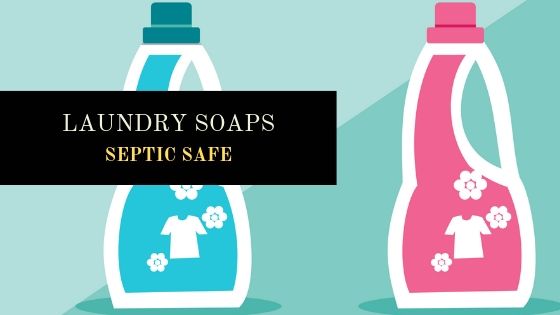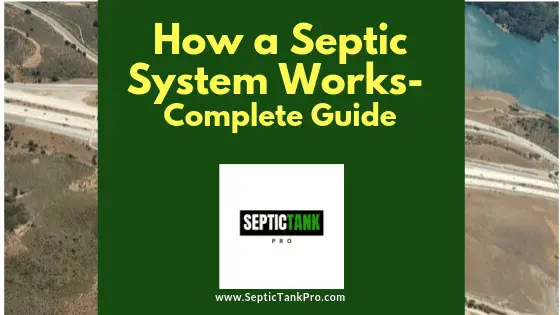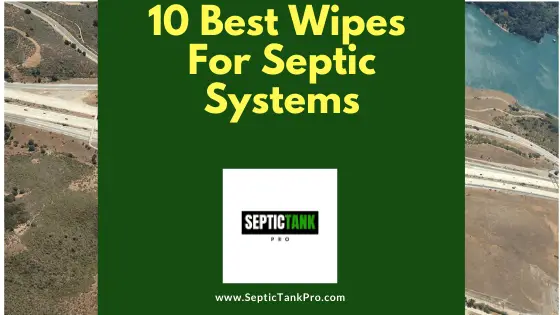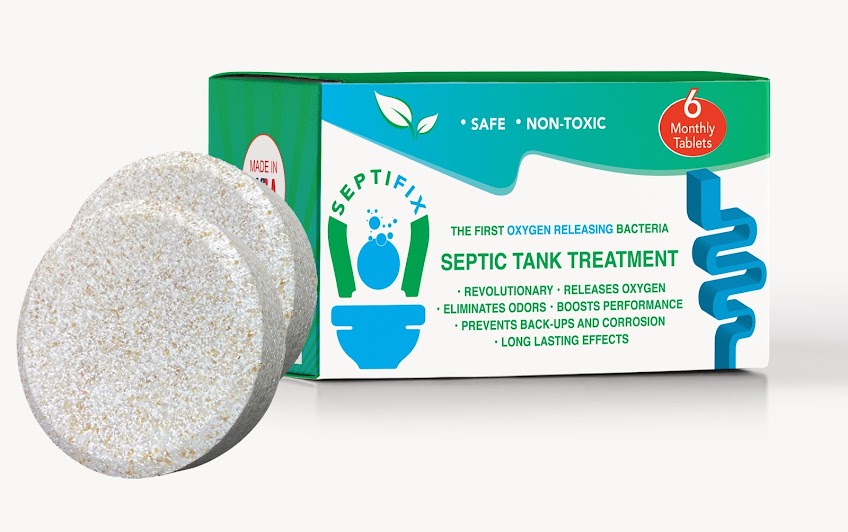Best Laundry Detergents For Septic Systems
Close to 25% of US households rely on septic systems to dispose of sewage and wastewater. Laundry contributes a major percentage of total wastewater collected. This said it is critical to know which laundry detergents are safe to use with septic systems.
Septic tanks require a delicate balance of bacteria and enzymes to effectively break down waste matter and some home cleaning products and detergents can disturb this balance, unfortunately. Being discerning about what type of septic-safe cleaning agents you use can actually help prevent expensive tank maintenance and serious health hazards all around.
What laundry detergents are septic-safe for septic systems? The quick answer is: it all depends on what type of septic system it is you have. If you have a conventional, gravity-powered system, liquid laundry detergents are recommended. If what you have is an aerated system, you should opt for powdered detergent in order to limit foam in the aeration chamber.
CALL 1.855-925-0760 For Service or Request a Quote
What To Consider When Picking a Detergent For Septic Systems
In general, though, it is wise to avoid the lesser-known or inexpensive powders as these often contain fillers that can cause clogs. Whichever product you choose, always make sure that it is labeled safe for septic tanks or systems.
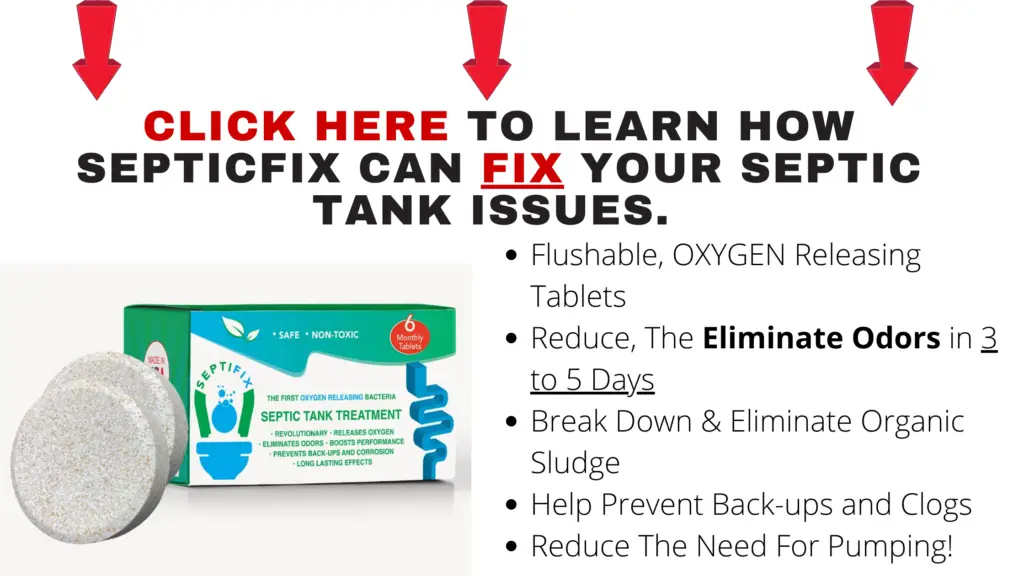
However, powdered laundry detergents, even those that claim to be septic system-safe, can cause serious clogs in your tank. Detergent powders may contain granulated plastic and other materials that don’t fully break down. When these materials enter your drain pipes and septic tank, they settle or stick to the sides and accumulate over time. Eventually, you end up with a clog that requires professional servicing. Liquid laundry detergents, in general, are a safer choice as these dissolve completely, and many are available with non-toxic and natural ingredients that are not detrimental to the enzyme balance of septic systems.
Laundry detergents that have low levels of surfactants are generally safe for septic systems. Surfactants are common in laundry soaps because of their ability to “lift” stains out and keeping them from settling back into the fabric. While convenient for removing stains, surfactants can contaminate ground and surface water if your septic system is not able to sufficiently process them. Natural surfactants are derived from plant oils and produce less suds than petrochemical surfactants made from crude oil, making the former a better alternative.
Likewise, laundry detergents labeled as “biodegradable” are best for septic systems as this means that these agents provide nutrients for microorganisms and naturally decompose. DIY-ed or homemade laundry soaps are safe for septic systems. That is, if they do not contain filler substances that forms clogs. Homemade recipes would typically contain natural ingredients like baking soda and do not yield too much suds. Septic-safe commercial laundry detergents might cost more than others, but these actually go a long way in keeping your septic tank operational and balanced, making them more cost-effective in the long run.
For you, we have put together a list of top laundry detergents that are best to use for septic systems. Apart from product highlights, we have likewise included some disadvantages to each product for your objective reference.
#1 Arm & Hammer Laundry Detergent


Arm and Hammer Plus OxiClean is a mid-priced laundry detergent available in the market. Ingredients include biodegradable surfactants, enzymes, baking soda, and oxygen bleach. It promises to deliver “whiter whites and brighter brights”.
PRO: Arm and Hammer Plus can be used as pre-treatment to help remove tough stains. It is formulated for both standard and high-efficiency washing machines and performs well in all water temperatures.
CON: The packaging was not manufactured with recycled materials, as a lot of consumers are now looking for. The measuring cap is somewhat difficult to read, as well as the product does not indicate its full ingredients listing on the container label.
#2 Dr. Bronner’s Pure-Castile Liquid Soap (in Citrus)

Dr. Bronner’s Pure-Castile Liquid Soaps are made with over 90% organic ingredients. It is safe for any skin type, not to mention the environment, as it is made with plant-based ingredients with none of the synthetic preservatives, thickeners, or foaming agents. Dr. Bronner’s Pure-Castile Liquid Soap is 3x more concentrated than most liquid soaps in the market. With this, you get multiple uses in just one product: laundry, mopping, hand-washing dishes, all-purpose cleaning, washing pets and more.
PRO: Its highly-concentrated formula goes a long way. You can dilute it with water and still expect great cleaning power. The product is fully biodegradable and use all-natural ingredients that are environment-friendly.
CON: Some consumers find that the citrus fragrance was not very distinctive. Another downside is the higher price point.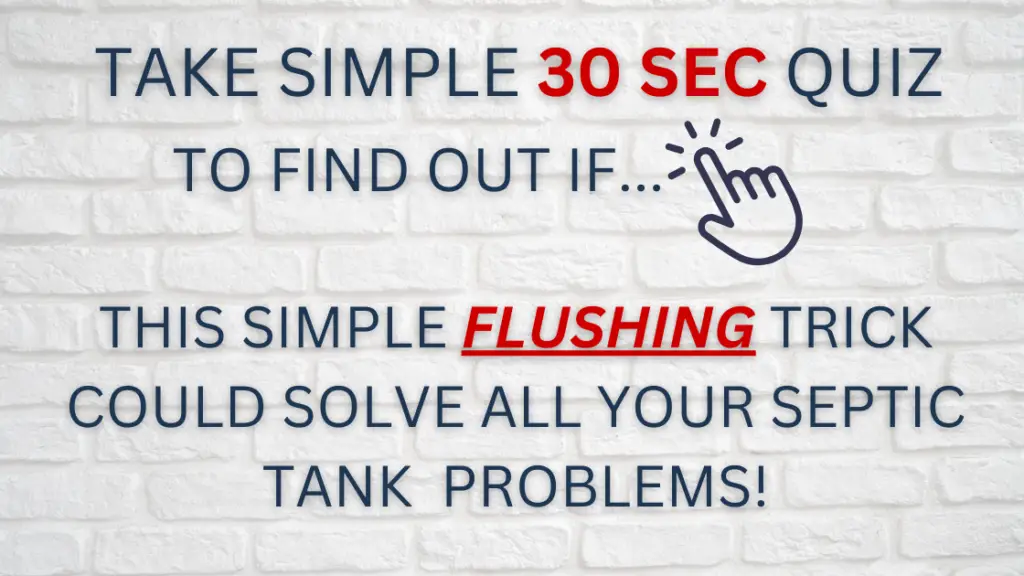
#3 Eco-Me Natural Non-Toxic Concentrated Liquid Laundry Detergent

Eco-Me’s Natural Concentrated Liquid Laundry Detergent leaves your clothes clean and with a fresh lavender blossom scent. It may not be fragrance-free, but its formulation does not include any synthetic fragrances. It is also free of formaldehyde-, paraben-, sulfate-, chlorine-, phosphate-, and dye-free. It is safe for sensitive skin, children, and pets.
PRO: The plant oils that make up this formula also help to fight bacteria. This product is both eco-friendly and cruelty-free. You get up to 64 loads with one 32 oz bottle. It is likewise safe in HE washing machines.
CON: The scent may smell great from the bottle, but it seems to only lightly transfer over to your clothes. If you have hard water, it tends to not lather up as much. This product may be more efficient in areas with soft water.
#4 Mrs. Meyers Clean Day Laundry Detergent

Mrs. Meyers Clean Day Laundry Detergent’s concentrated formula is effective yet gentle on clothes. The mild wildflowers and fruity scent leaves clothes smelling fresh and clean. The enzymes and plant-derived ingredients are tough on dirt and stains, yet the formulation is gentle enough for baby clothes.
PRO: It is a highly-efficient but earth-friendly brand. Mrs. Meyers Laundry Detergent is biodegradable and works well with both HE and conventional washing machine. You get 64 loads of laundry per 64 fl. oz bottle.
CON: One downside to this product is its higher price point, compared to other brands and type.
#5 Seventh Generation Natural Concentrated Laundry Detergent

Seventh Generation’s Natural Concentrated Laundry Detergent is made with a triple enzyme formula that helps fight even the toughest stains. It is also hypoallergenic, making it a safe choice for people with sensitive skin and for babies’ clothes. It is also biodegradable, with its plant-derived main ingredients.
PRO: The 4x concentrated formula makes Seventh Generation’s Natural Concentrated Laundry Detergent go a long way. This makes it cost-effective in the longer run. There are no artificial dyes, fragrances, or fabric brighteners in the formula. It is not just safe for you clothes and skin, but is also safe for the environment and septic systems.
CON: Some consumers have indicated that the bottle tends to leak a bit, especially during shipping. Its price point is a little on the high side. It is recommended to stick to the amount prescribed per load, because a little really does go a long way. Also, it does not leave any sort of scent on your clothes, which some consumers may actually look for.
#6 Grandma’s Non-Detergent Laundry Soap

Grandma’s pure and natural Non-Detergent Laundry Soap was made through traditional, hand-crafted methods to best preserve the quality and effectiveness of its all-natural ingredients. This natural laundry soap’s formulation includes no detergents, dyes or fragrance that can irritate sensitive skin, making it perfect for babies, too. Grandma’s Non-Detergent Laundry Soap is effective in removing odor and oils from fabrics.
PRO: Consumers love Grandma’s for its fragrance-free freshness and its ability to clean clothes. Its all-natural ingredients make Grandma’s highly-biodegradable and safe for septic systems. Grandma’s works well in soft water.
CON: Since this natural laundry soap does not contain artificial softeners, clothes may not feel as soft after washing. Also, it may not work as well with hard water.
#7 Good Natured All-Natural Eco-friendly Lavender and Eucalyptus Laundry Soda/Detergent

Good Natured’s Laundry Soda/Detergent in Lavender and Eucalyptus is an all-natural and non-toxic blend of plant-based soaps that leaves clothes clean, soft, and fresh. It is hypoallergenic and biodegradable formulated without petroleum-based detergents and artificial fragrances.
PRO: Made with plant-based, biodegradable, salt-based minerals, and fresh lavender and eucalyptus essential oils, this all-natural laundry detergent works well with both standard and HE washing machines. It thoroughly cleans your laundry and leaves it smelling fresh and natural.
CON: Product does not come with a scoop, making it tricky to measure when doing laundry loads.
# 8 Planet 2X Laundry Detergent

Planet 2x Ultra Laundry detergent is a septic safe, hypoallergenic formula. It leaves your laundry fresh and clean without the added chemicals. Planet 2X Ultra does not contain dyes, fragrances, and brighteners. It is great to use on baby clothes and for people who have skin sensitivities.
PRO: All of Planet 2x Ultra’s ingredients are phosphate-free, as well as free from all dyes and fragrances, making it an effective hypoallergenic choice. Furthermore, it is effective even in cold water settings on washers. No more need for hot water to get the stains out.
CON: Planet 2x Ultra has been known to not be as effective on laundry in areas with hard water. Some consumers have also said that the inside of the cap is a bit difficult to read due to the design.
#9 Biokleen Free & Clear Laundry Powder

Biokleen Free & Clear Laundry Powder is up to 3x concentrated, meaning it does not take very much to get your clothes clean. It is free of fragrances, dyes, and preservatives. Biokleen is eco-friendly and safer for septic systems.
PRO: The super-concentrated formula can get you up to 150 loads in a standard washer, and up to 300 loads in an HE washer with just one 150 oz bottle. Biokleen Free & Clear is tough odors and stains, effective in cold water, and leaves your clothes free and clear from stains and odors.
CON: Although labeled as natural citrus, a number of consumers say that it doesn’t leave much of a scent on clothes. Also, the bottle design is a little wanting because detergent drips from the spout when you use it, allowing for wastage. Minimize the wastage by wiping the spout off with a clean cloth after each use, and then tossing the cloth into the washer.
#10 Ecover Zero Laundry Detergent

Ecover Zero Laundry Detergent is free of harsh chemicals and dyes, making it a septic-safe detergent. It is manufactured with plant-based ingredients guaranteed effective on tough stains, even on cold water settings.
PRO: Ecover Zero’s formula is highly concentrated, so a little goes a long way. This means that you use less of Ecover Zero than you typically would use with other laundry detergents. The ingredients, as well as the packaging itself, is made from plant-based materials. The packaging is biodegradable, making it eco-friendly and safe.
CON: It’s a bit pricier than your average detergent, but still reasonable for any hypoallergenic formulation. It does not include any fabric enhancers that enhance the brightness of clothes.
#11 Start Fresh Super Concentrated Laundry Detergent

Start Fresh is hypoallergenic and super concentrated. Just a little goes a long way. Made with 100% biodegradable, phosphate -free, and cruelty-free ingredients. It has a color-safe, heavy-duty cleaning power that keeps your clothes looking their best.
PRO: Its hypoallergenic formula makes it great for baby clothes. It has a water-trap formula that allows for a clean rinse.
CON: Start Fresh is fragrance-free, so clothes may not be as fresh-smelling as some consumers may prefer.
#12 Heritage Park Fine Fabric Wash

Heritage Park Fine Fabric Wash is especially formulated to gently and effectively clean without causing damage to costly fabrics, especially for lingerie and delicates. Its concentrated formula works great with both standard and HE washing machines. It is the perfect blend of powerful cleaning enzymes, effective in removing tough stains, while staying gentle on garments on sensitive skin.
PRO: Its natural, fragrance-free, and hypoallergenic formulation makes Heritage Park Fine Fabric Wash gentle enough for babies and sensitive skin, but effective in its cleansing power. It has a neutral pH level and is guaranteed biodegradable.
CON: Some consumers have indicated that Heritage Park Fine Fabric Wash may have low-stain-removing power for its relatively high price point.
Cleaning Products that are Safe to Use with Septic Systems
Typically, septic systems can handle most chemical cleaning products, but in moderation. Using too much chemicals will potentially throw off the bacterial balance inside the septic tank. This happening can lead to septic problems such as clogging, groundwater pollution, and drainfield malfunction. Trouble arises when excessive amounts of the chemicals are allowed into the system. For best results, it is recommended to always use septic-safe products as indicated on the label.
The Environmental Protection Agency (EPA) assigns each potentially dangerous chemical a registration number. This indicates if the product is safe for homes and for use with septic systems. Many common household products contain these labels. Any biodegradable or environmentally-friendly product is likewise perfectly safe for use with septic systems.
All-Purpose Cleaners. Laundry detergents or any other all-purpose cleaners that can be applied without needing to use hand gloves are generally safe for use with septic systems. Natural, phosphate-free detergents and other multi-purpose cleaners are also generally safe and will not harm the helpful bacteria inside the septic tank and in the drainfield. Go with cleaners that are non-toxic, biodegradable, and chlorine-free.
Household Bleach. Products containing bleach are generally safe for use with septic systems in moderate amounts. Bleach is a chemical that kills bacteria, but when it is diluted with water (as in most household applications) it won’t be potent enough to kill all the helpful bacteria that are vital in the tank and drainfield. Whenever possible, though, it would still be best to use alternatives to bleach in order to protect the essential bacteria in the tank and drainfield. Food-grade hydrogen peroxide (3% solution) vinegar diluted in water, and baking soda are good alternatives.
Water-Based Cleaners. Most water-based cleaners are safe for septic use. Water-based cleaners do not contain harsh solvents that can harm septic system components and the essential bacterial that are naturally present. Water-based cleaners should always list water as the main ingredient on their labels.
Septic-Safe Drain Cleaners. If you use drain cleaners, note that only drain cleaners in liquid form are safe for septic systems. Solid or foaming drain cleaners should be avoided as these can damage the septic system. Although, even liquid drain cleaners may cause septic tank damage if used too frequently or excessively. Use sparingly and only when absolutely necessary.
Ammonia Cleaner. Pure ammonia and cleaning products containing ammonia are also considered safe for septic system use in small amounts. Ammonia will not kill the healthy bacteria in the septic system and it will not leach into the groundwater. But, just like any chemical, ammonia should be used in moderation. Remember, too, to take precautions and not to mix chemicals like bleach with ammonia.
Household Items. Items you typically have around the house like baking soda and vinegar are actually effective cleaners that are safe for your septic system. They can be used to deodorize, disinfect surfaces, and whiten. Vinegar and baking soda work well in the laundry and for cleaning surfaces. Use these to naturally clean your toilet, or use it to scour hard-to-clean surfaces. Still take caution as improper and excessive use of baking soda and vinegar may actually upset the necessary pH balance in your tank.
Household cleaners that are safe for septic systems and can make your life easier. Natural cleaners could be more affordable, too. Although, as with everything else, anything in excess can be more harmful than helpful.
How Septic-Unsafe Laundry Detergent Affects Your Septic System
Your choice of laundry detergents bear a big impact to the health of your septic system. To help treat the pathogens and other contaminants present in wastewater, septic tanks are filled with essential bacteria. Whether aerobic or anaerobic, bacteria both mineralize and decompose the waste in wastewater. Laundry detergents affect the population of bacteria in your septic system. Certain cleaning agents, such as bleach, non-biodegradable and antibacterial soaps can weaken or even kill off the bacteria that maintains your septic system’s health. Moreover, excessive detergent substance in a septic tank can cause clogged soil pores, which results to drainage difficulties and sewage backups. Typically, detergents in liquid form are the best option when it comes to healthy septic systems.
Certain detergent products are labeled to be septic-safe and they are almost always in liquid form. This is because liquid detergents have less of the potentially harmful ingredients that may damage septic system components. Some dry or powdered detergents use clay and sodium as fillers, which are likely culprits to system clogs.
What to Do If You’ve Been Using Non-Septic-Safe Laundry Detergent
If you suspect that you have been quite indiscriminate with your detergent use but still unsure of what to use, one of the first steps to undertake is to limit the use of anti-bacterial soaps and cleaning agents. Anti-bacterial soap, obviously, is made to kill bacteria. While this may be great for cleaning all around, too much use of anti-bacterial agents may be catastrophic for your on-site wastewater treatment system. By its very nature, anti-bacterial soaps are detrimental to the essential bacteria in any septic system. Inside the septic tank, bacteria break down solid waste, while the bacteria in the drainfield eliminates harmful pathogens, making it safe for the treated effluent to be released back into the environment. While a single use of antibacterial soap has little to no effect, using antibacterial products on a regular and prolonged basis can harm the bacteria living in your septic tank and will seriously curtail their effectiveness. Thus setting off a chain of septic components’ malfunction, potentially leading to system failure.
Consult with the septic service professional that pumps out your septic tank to find out what products they recommend as suitable for septic systems. As a general reference, we have likewise come up with a list of 101 septic-safe products.
Should you ever need to use septic tank treatment products to mitigate excessive usage of septic-unsafe laundry detergents, choose a product that adds good bacteria to the septic tank. Opt for products that bear natural active bacteria and enzymes that are proven effective in breaking down household waste. Make sure that the treatment you use is compatible with the type of septic system you have. Again, your septic professional will be able to help you out with this.
You may also go totally natural and flush a packet of brewer’s dry yeast down one toilet (ideally on the ground or bottom floor) once a month. The yeast will help add “good” bacteria to your septic tank and break down waste.
Using septic-friendly cleaning products can help prevent expensive repairs and avoid serious health problems. Generally, most all-natural cleaners are safe for use with septic systems. One of the best ways to make sure that you are using septic-safe laundry soap is to reference the US Environmental Protection Agency’s (EPA) list of Safer Choice products. Also, note that non-chlorine, non-ammonia, non-antibacterial, non-toxic, and biodegradable cleaning products are better for, not just your on-site treatment facility and its occupants, but for the environment as well.
7 Best Hypoallergenic and Septic-Safe Laundry Detergents
Most of the laundry detergents you can find on the market contain artificial dyes and fragrances. These two substances are known common allergens. Chemical dyes wear down the natural protective layer of the skin. One becomes susceptible to dry, itchy skin or, worse, develop a condition known as contact dermatitis. Know that these artificial dyes serve no purpose in cleaning clothes. Extra caution needs to be taken if your household includes members that are allergy and asthma sufferers. Laundry detergents can be a source of (or a trigger for) serious skin irritations and other allergy symptoms such as stuffy nose and headache.
On the other hand, fragrances may cause respiratory problems and also trigger allergic reactions (this is especially true for allergy sufferers and small children). Again, note that fragrances are not true indications of cleanliness.
Hypoallergenic laundry detergents do not contain these allergy and asthma-inducing chemicals. They are dye-free and fragrance-free. Hypoallergenic laundry detergents are the ideal for the clothes of allergy sufferers and people with skin conditions (like psoriasis, dry skin, or eczema). The only thing better than hypoallergenic laundry detergents are hypoallergenic laundry detergents that are also safe for use with septic systems. Which is why we listed down seven of the best of such products.
Sun & Earth Natural Laundry Detergent

Sun & Earth Natural Laundry Detergent is made from 100% plant-based ingredients. So it is safe, not only for family members and pets, but for the environment, as well. Sun & Earth does not contain dyes or preservatives and is fragrance-free. It’s guaranteed safe for sensitive skin types.
PRO: It is a powerful stain-remover, yet gentle on sensitive skin. The absence of perfumes and dyes does not, in any way, deter its cleaning abilities.
CON: Some consumers have complained that its packaging is unsatisfactory, as some have experienced leak-y packaging. Some have also noted that product is not 100% unscented as labeled.
Nellie’s All Natural Laundry Soda

Nellie’s All Natural Laundry Soda is safe on skin, yet time tough on dirt and stains. If you want your clothes feeling fresh, soft, and absolutely clean after washing, Nellie’s will be a good choice. It does not leave residues and harmful chemicals on your clothes. It does not contain fragrances, chlorine, phosphates, gluten, SLE and SLES. It comes in “powdered foam” form, promising utmost cleaning power for whites and colors. What’s important is that it is biodegradable. It also works in any water temperature in various washer settings.
PRO: Perfect for sensitive skin and baby clothes. It is safe for the environment because it is guaranteed biodegradable.
CON: The fact that it is not in liquid form, some consumers might still be unsure if this will work optimally with on-site septic systems.
Ecos Baby Laundry Detergent

Ecos Baby Hypoallergenic laundry detergent is effective in removing tough dirt stains on babies’ clothes. More importantly, it remains gentle on clothes and your baby’s sensitive skin. Its formulation is ideal for allergy sufferers, as well. It does not contain phosphates, optical brighteners, or parabens. Also, it is made without dyes and fragrances.
PRO: The product is dermatologist-tested. Made from plant-based ingredients, Ecos Baby is biodegradable, making it safe for septic systems and the environment as well. Ecos Baby is EPA Safer Choice-certified.
CON: It might not remove stains as thoroughly as you will expect. Its cleaning power isn’t as great as the non-hypoallergenic brands.
Tide PODS Free & Gentle Laundry Detergent

It is unscented and hypoallergenic, making it a perfect choice for sensitive skin. Tide PODS Free & Gentle is likewise free of dyes and perfumes, ideal for babies’ clothes and allergy sufferers.
PRO: This product is dermatologist-tested. Compatible with both standard and HE washing machines. It dissolves in both hot and cold water.
CON: It may not dissolve as effectively, at times leaving residue on clothes. Some consumers have also indicated the inconvenient packaging.
Grab Green 3-in-1 Laundry Detergent Pods

This 3 in 1 naturally-derived detergent cuts through dirt, leaving your laundry clean and fresh. It is an effective laundry detergent that’s at the same time, earth-friendly. This biodegradable laundry detergent is formulated free of phosphates, chlorine, dyes and masking agents, making it a perfect choice for babies’ clothes, sensitive skin, and allergy sufferers.
PRO: Grab Green 3-in-1 is compatible with both standard and high-efficiency (HE) washing machines. It has a mild calming scent that will last throughout the washing and drying cycle all the way to when you use your fabrics and linens.
CON: Pods don’t dissolve as effectively as detergents in liquid form.
Purex Baby Soft Liquid Laundry Detergent

Purex Baby has a light fragrance that’s just right for babies’ clothes and leaves them smelling fresh and clean. It is hypoallergenic and free of dyes. Purex Baby Soft Liquid Laundry Detergent is dermatologist-tested and formulated to be gentle sensitive skin and allergy sufferers.
PRO: This highly concentrated formula delivers 2X more cleaning power so you only need to use half as much than you would other detergent brands.
CON: A few consumers have expressed dislike for the product’s scent. They’ve indicated more of a chemical scent rather than “baby fresh”.
All Liquid Free & Clear Laundry Detergent

All Liquid Free & Clear is dye- and perfume-free. It is recommended by dermatologists, allergists and pediatricians for sensitive skin and babies’ clothes.
PRO: This concentrated formula delivers 2X more cleaning power in every drop. This means that you have to use as much to fight through tough stains. Product is tough on stains yet gentle on skin.
CON: Dissatisfied customers have cited faulty or inconvenient packaging, especially the spout. It may also happen that the bottle might leak during shipping.
Using soap or detergent in excessive amounts can be problematic for your septic system. Many laundry detergents contain surfactants. While surfactants may make detergents be effective in lifting dirt off the surface of a fabric, these chemicals can likewise be serious contaminants to ground and surface water. In addition to using septic-friendly laundry detergents, do make it a habit to space out your laundry loads over a few days rather than doing one heavy load at once. Also, make sure to use normal (prescribed) amounts of detergents in your laundry loads. Remember that more detergent does not necessarily mean cleaner clothes and it could cause problems for your septic system in the long run. Allowing excessive amounts of detergent into your septic tank also means introducing more (potentially-harmful) chemicals into your entire system, which in turn is detrimental to the helpful bacteria that are naturally present in your septic system. And besides being discriminate in your use of laundry detergents, having your septic tank pumped out regularly will definitely help keep your septic system healthy and functional for a very long time.
Sources Used
.https://www.ez-plumbing.com/blog/2019/may/best-laundry-detergents-for-your-septic-system/
https://www.hunker.com/13408564/the-best-detergent-cleaning-product-for-septic-tanks
https://nearsay.com/c/345423/143948/which-laundry-detergents-are-safe-for-septic-systems
https://www.thespruce.com/best-laundry-detergents-for-septic-systems-2146618
https://www.hunker.com/13420766/the-best-products-to-use-for-cleaning-homes-with-septic-systems
https://www.paradisevalleyseptic.com/laundry-done-right-how-to-maintain-a-healthy-septic-system/
https://www.harrisoncountyhealth.com/maintain.htm
https://www.flohawks.com/blog/is-your-soap-damaging-your-septic-system/
https://www.hunker.com/13429466/how-to-add-good-bacteria-to-a-septic-tank

